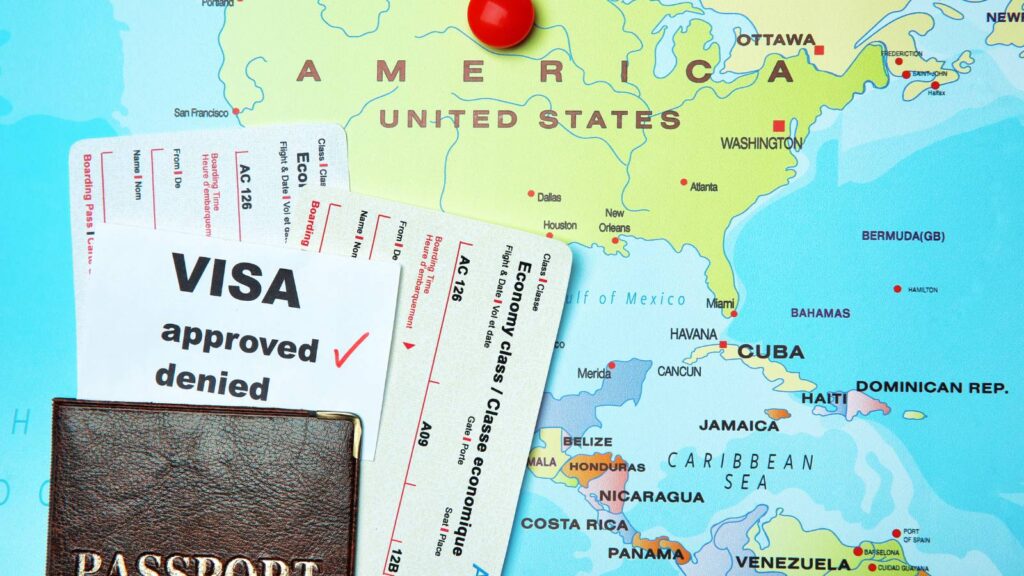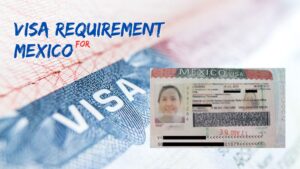The Gulf Cooperation Council (GCC) has long been a destination of hope for millions of migrant workers and professionals from Asia, Africa, and beyond. Drawn by the promise of lucrative salaries, career advancement, and a better standard of living, they invest their life savings in the dream of working in the booming economies of the United Arab Emirates, Saudi Arabia, Qatar, Kuwait, Oman, and Bahrain.
Beneath this promise lies a growing crisis that is quietly ruining lives: GCC visa fraud rings. These sophisticated criminal networks prey on vulnerable job seekers, offering them fraudulent employment opportunities in exchange for significant upfront payments. For many victims, the outcome is devastating — financial loss, emotional trauma, and in some cases, entrapment in legal limbo.
The problem, while widespread, remains underreported. Many victims suffer in silence due to fear of deportation, social stigma, or a belief that justice will never be served. This silence has allowed the fraud to thrive, creating an underground economy that not only undermines the trust in GCC labor systems but also tarnishes the region’s reputation as a safe employment destination.
Anatomy of the Scam: How Visa Fraud Rings Operate
The operations of GCC visa fraud rings follow a calculated and highly organized structure. The first stage involves identifying target groups, typically from regions with high labor migration rates. Fraudsters then use job portals, social media platforms, and even personal referrals to make contact with potential victims.
The scam progresses step by step:
- Baiting the Victim: The job seeker is presented with a lucrative offer, often for positions in construction, hospitality, healthcare, or the oil sector.
- Faked Legitimacy: Fraudsters produce forged employment contracts, visa approvals, and company documents, complete with counterfeit seals and signatures.
- Payment Requests: Victims are asked to pay for “processing fees,” “medical clearance,” or “security deposits” before the visa can be issued.
- Disappearance: Once payments are made, the scammers vanish, leaving the victim stranded. In some cases, victims travel to the GCC only to discover at immigration that their visas are invalid.
These tactics are refined enough to deceive even experienced professionals, making them especially dangerous.
Human Cost: Victims’ Stories from the Ground
Every statistic in visa fraud reports hides a deeply personal tragedy. Ramesh, a 32-year-old from Nepal, sold his family’s only farmland to raise $4,000 for a hotel management job in Dubai. Upon arrival, he discovered that the company didn’t exist, leaving him penniless and without legal status.
Aisha, a nurse from Kenya, was promised a hospital job in Qatar. When she landed, her visa was deemed invalid, and she was given just 48 hours to find legitimate employment or face deportation.
These victims suffer more than just financial losses. They return home burdened with debt, face ridicule from their communities, and often struggle with severe emotional distress. Some are unable to return at all, instead working illegally in unsafe conditions to repay loans, making them vulnerable to further exploitation.
Weak Links in Oversight: Where the System Fails
Visa fraud thrives in the gaps between recruitment agencies, employers, and immigration systems. In some cases, recruitment agencies fail to conduct proper background checks on employers. In others, agencies themselves knowingly participate in scams to profit from desperate job seekers.
Immigration and labor departments in the GCC sometimes lack unified systems to cross-check documents in real time. Without centralized verification tools, fraudulent paperwork slips through, giving criminals the opportunity to operate with minimal risk of detection.
Furthermore, coordination between the GCC states and labor-exporting countries remains inconsistent, leaving a loophole-filled environment that scammers exploit with ease.
Role of Technology in Spreading the Fraud
Technology has become both a facilitator of opportunity and a weapon of deception. Social media platforms like Facebook, Instagram, and TikTok are flooded with advertisements for “urgent hiring” and “guaranteed placement” jobs in the GCC.
Fraudsters create professional-looking websites and fake online job portals, complete with fabricated staff lists, testimonials, and government approval stamps. Messaging apps like WhatsApp and Telegram allow them to communicate with hundreds of victims while staying anonymous through disposable phone numbers and encrypted channels.
This digital reach enables scammers to target people across multiple continents simultaneously, making the fraud both scalable and hard to trace.
Cross-Border Challenges: Why Prosecution Is So Difficult
Transnational nature of GCC visa fraud rings presents significant legal hurdles. Often, the recruiters operate from one country, collect payments in another, and send victims to a third country. This makes it difficult to determine jurisdiction and legal responsibility.
Differing labor laws, visa regulations, and criminal procedures between countries further complicate enforcement. Even when victims file complaints, authorities in one country may lack the authority to pursue offenders operating abroad. As a result, many fraudsters continue their operations without facing legal consequences.
Financial Trail: Who Really Profits?
The profits from these scams often extend far beyond the individual fraudsters. Investigations have linked visa fraud proceeds to organized crime networks involved in money laundering, drug trafficking, and human smuggling.
The stolen funds are often moved through multiple channels — including bank transfers, cryptocurrency transactions, and offshore accounts — making them nearly impossible to trace. A single fraud ring can net hundreds of thousands of dollars in just a few weeks before authorities even begin to investigate.
Impact on GCC’s Reputation and Labor Market
These scams erode trust in legitimate migration pathways and tarnish the GCC’s reputation as a safe destination for foreign workers. Skilled professionals may become hesitant to apply for genuine positions, fearing they could be victims of fraud.
This mistrust could result in labor shortages in vital sectors, including healthcare, engineering, and construction. Additionally, the presence of undocumented or illegally recruited workers can create strain on public services, foster workplace exploitation, and threaten social stability.
Fighting Back: Initiatives and Reforms Underway
Several GCC countries have begun implementing measures to combat visa fraud. These include centralized recruitment platforms, QR code-enabled job offer verification systems, and stricter licensing rules for recruitment agencies.
Public awareness campaigns, often in collaboration with NGOs, are helping to educate potential migrants about the dangers of fake job offers. These programs use workshops, online resources, and media outreach to spread information about red flags and safe recruitment practices.
However, without stronger cross-border cooperation and legal frameworks that protect victims, these measures will only address part of the problem.
Practical Advice: How to Spot and Avoid Visa Fraud
Job seekers can protect themselves by remaining vigilant and following these guidelines:
- Avoid job offers that require no interviews or skill assessments.
- Be cautious of employers who demand large upfront payments for visas or processing fees.
- Verify the legitimacy of the company through official government portals.
- Look out for email addresses and websites that do not match official company domains.
If you suspect fraud, report it immediately to your country’s labor department, the relevant GCC embassy, and trusted NGOs specializing in migrant rights.
Without decisive action, the cracks in the system will continue to widen, and more lives will fall through — leaving dreams shattered and futures stolen.
FAQs
1. What are GCC visa fraud rings?
GCC visa fraud rings are organized scam networks operating in the Gulf Cooperation Council countries (Bahrain, Kuwait, Oman, Qatar, Saudi Arabia, and the UAE). They lure job seekers—often from Asia and Africa—into paying large sums for fake work visas, forged job offers, or fraudulent sponsorship arrangements.
2. How do these visa fraud scams usually operate?
These scams often begin with a recruiter or intermediary offering a lucrative job in a GCC country. Victims are shown forged employment contracts, fake company websites, and doctored visa approval documents. Payments are requested for “processing fees,” medical checks, or travel arrangements, but once the money is sent, the contact disappears.
3. Who is most at risk of falling victim to GCC visa fraud rings?
Migrant workers, especially those from low-income countries, are at the highest risk. However, professionals in fields like IT, engineering, and hospitality have also been targeted through fake LinkedIn job offers and fraudulent recruitment agencies.
4. Why is GCC visa fraud so hard to detect before it’s too late?
Fraudsters use convincing documentation, fake company seals, and even cloned government websites. Many victims only realize the scam when they arrive at the airport and are denied entry or when they check with official immigration departments.
5. Are recruitment agencies involved in these scams?
Some scams involve unlicensed or rogue recruitment agencies operating outside legal oversight. While many agencies are legitimate, the lack of cross-border verification makes it easier for fraudulent operators to thrive.
6. What role does technology play in spreading these scams?
Social media platforms like Facebook, WhatsApp, and Telegram are frequently used to advertise fake jobs. Fraudsters also run cloned websites of real GCC companies, making it harder for job seekers to distinguish between genuine and fake opportunities.
7. Can victims recover their lost money?
Recovering funds is extremely difficult. Many payments are made through informal channels like money transfers, which are hard to trace. In most cases, victims must file complaints in both their home country and the GCC country, but jurisdictional issues delay or block investigations.
8. What are the warning signs of GCC visa fraud rings?
Common red flags include:
- Unsolicited job offers without interviews
- Requests for upfront payments
- Email addresses from free domains instead of official company emails
- Vague job descriptions with high salaries
- Refusal to provide verifiable company registration details
9. How are GCC governments addressing the issue?
Some GCC countries have implemented online verification portals for visas, mandatory recruitment licensing, and stricter monitoring of job advertisements. Awareness campaigns in collaboration with embassies are also being launched to warn potential migrants.
10. What should I do if I suspect a GCC visa scam?
Immediately verify the job offer through official embassy or labor ministry channels. Do not send money or personal documents before confirmation. If you have already paid, gather all evidence—contracts, receipts, messages—and report the case to your local police, embassy, and the relevant GCC authorities.






